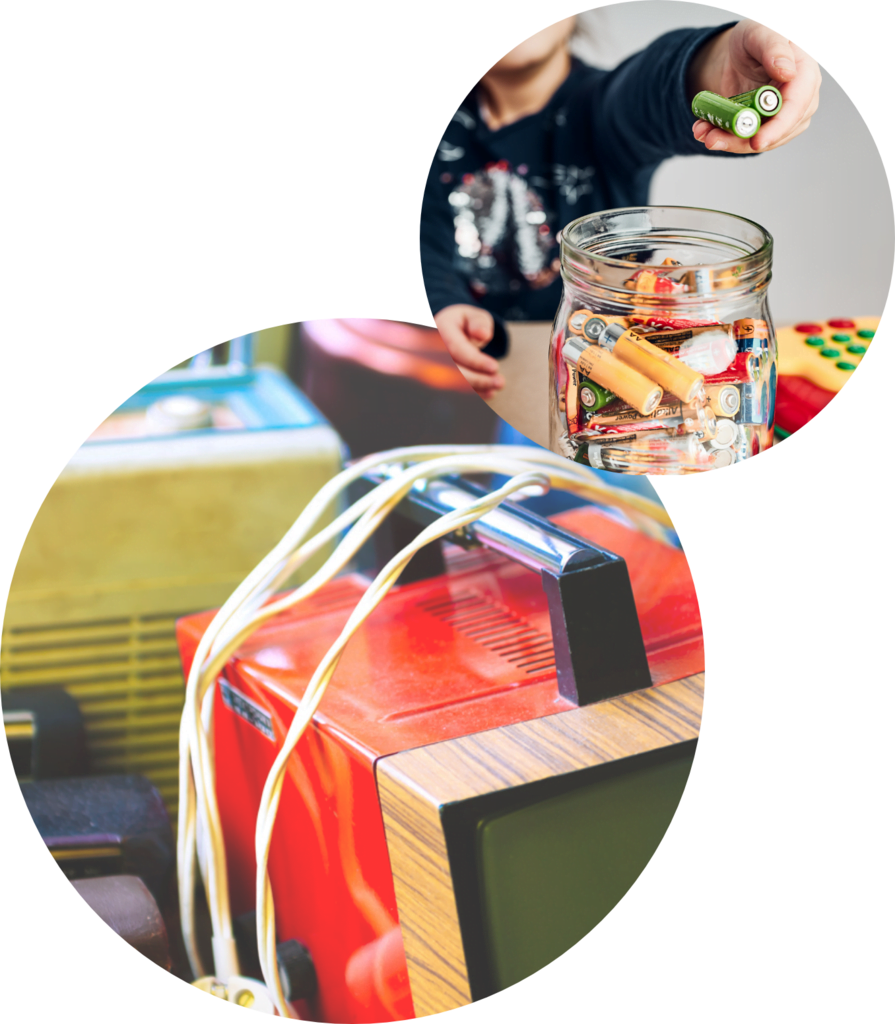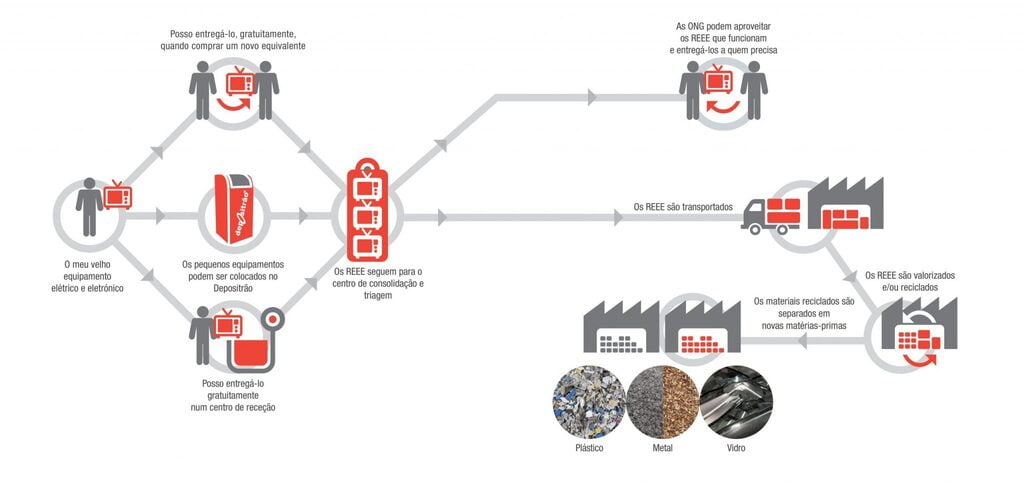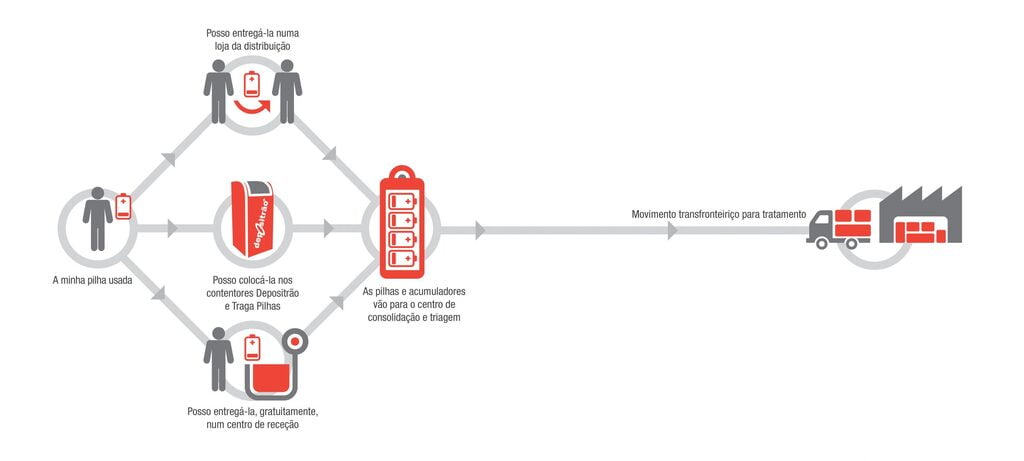Why Recycle
With the surge in rampant product consumption, their lifecycle is increasingly shorter, leading to a higher volume of waste that requires specific management, including Waste Electrical and Electronic Equipment (WEEE) and Battery Waste (BW).
Recycling is positive and beneficial for people, companies, and the environment. This mission is only possible if we all contribute actively by delivering our waste to the appropriate collection points and ensuring its decontamination, treatment, and recycling.
Upon collection, Waste Electrical and Electronic Equipment (WEEE) and Battery Waste (BW) are delivered to a reception center, where they are sorted according to their operational treatment category. The operational categories used to separate the collected waste include:
- Refrigerators and freezers
- Air conditioning equipment
- Other temperature regulation equipment
- CRT screens
- Flat screens
- Lamps (tube, energy-saving, gas discharge, etc.)
- LED lamps
- Large-sized equipment (>50cm)
- Photovoltaic panels
- Small-sized equipment (≤50cm)
- IT and telecommunications equipment
- Telemóveis
- Impressoras
- Printing consumables

After being sorted into categories, these materials are transported to waste treatment facilities for decontamination, recycling, or valorization. The stage of obtaining raw materials (recycling) closes the loop and leads to the manufacturing of new products (material incorporation in the industry).
The treatment of WEEE is very complex because these devices typically contain a wide variety of materials, such as different types of plastics, various metals, or glass. In addition to the material diversity, they also consist of hazardous substances that need to be removed and treated separately, including heavy metals also found in battery waste (mercury, lead, nickel, cadmium, and lithium).
What happens to our end-of-life electrical and electronic equipment

Waste Electrical and Electronic Equipment (WEEE)
All equipment that requires an electrical current, a battery, or a power source to function and has reached the end of its life.
What happens to our used batteries

Resíduos de Baterias
Devices capable of storing energy to power electrical and electronic equipment.
